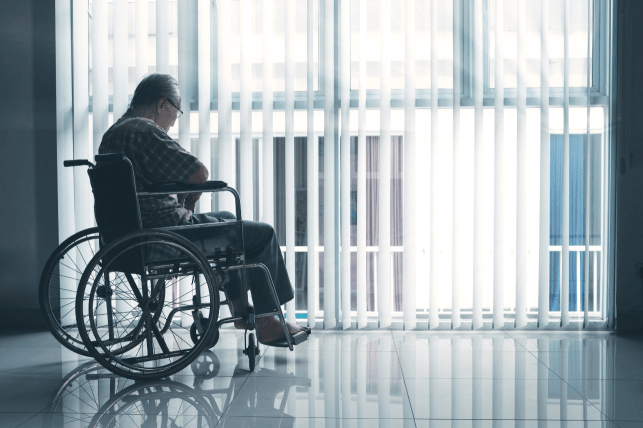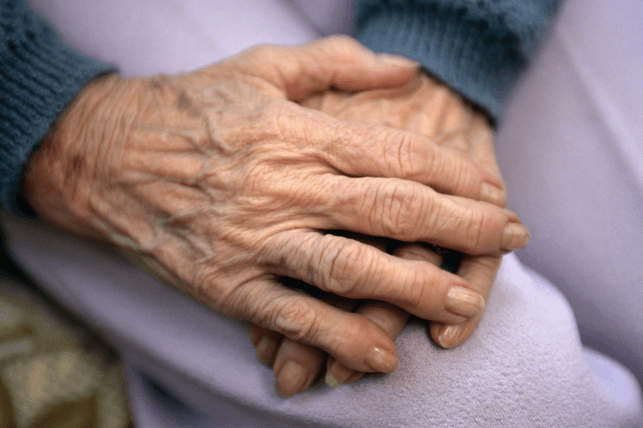
Why Transitional Care Is Critical for Seniors Recovering from Hip or Knee Surgery
Dee Bustos
Transitional Care
Nov 08, 2021
9 min read
Did you know that most hospital readmissions after knee or hip surgery are preventable? Care Indeed offers Specialized Transitional Care to help Bay Area seniors safely maintain independence and continue healing from the comfort of home.
What Is Transitional Care?
Transitional care is support provided to seniors by qualified caregivers such as Certified Nursing Assistants and home caregivers. A senior hospitalized for knee replacement surgery or hip surgery needs extra care and support during the recovery period at home.
Qualified caregivers providing transitional care are experts at coordinating care and communicating with healthcare providers. The individual recovers faster and patient-focused discharge instructions are implemented by the transitional care nurse.
Transitional care nurses also help the flow of communication between the medical team and family caregivers. Sometimes the discharge instructions are relayed to the patient but not the family caregiver. It’s important for everyone involved to understand the individual’s home recovery plan so all can work together as a team.
Proper rest, physical therapy, and returning to the activities of daily living are necessary for a complete recovery. The first weeks of recovery time after being released from the hospital can make the difference between a full return to independence or readmission to the hospital. Transitional care provides professional care to oversee the safety of the client and promote a healthy recovery.
What Are Dangers During the Home Transitional Recovery Time?
When a patient returns home, mobility is limited. If the individual tries to move, there may be issues with balance, muscle strength, and coordination. Without care and supervision, seniors are at a higher risk of falling.
It is important that the home environment is optimized for clients to recover in safety and comfort. Clutter can be dangerous, causing injuries or falls. The recovery area should be organized to easily support yourself or family member during the healing process.
Complications from surgery or infection at the surgical site are always possible. Other risk factors include the development of a new illness or complication, wound deterioration, and confusion about medicine dosage.
Clients may need to use specialized equipment during this time to help with mobility. You might already have some of the following items. If not, the following may be recommended to help create a safe environment for yourself or loved one during recovery.
Examples of useful transitional equipment:
- Walkers
- Canes
- Shower chairs
- Bed Rails
- Reacher/Grabbers
What Services Are Provided with Transitional Care?
The exact services of transitional care providers will depend on the plan of care recommended by the hospital where the patient is released. You may be surprised at how much is involved with helping you or your family member fully recover post-surgery.
After knee replacement surgery or hip surgery, physical therapy is necessary. Transitional care nurses help implement the therapy and make sure the client does the exercises as scheduled. Monitoring the surgical area as it heals will be done to watch for signs of infection.
Improving range of motion is an important component of recovery. Medication management ensures your family member takes the right medicines in the correct dosage at the prescribed times.
Caregivers also offer companionship, social support, and keep clients mentally active with appropriate games and activities. Because qualified caregivers are monitoring you or a loved one, any change in health will be observed, and red flags indicating complications caught quickly.
Transitional Care Services frequently include:
- Patient and family education
- Family caregiver training
- Equipment set up for home safety and transitional wellness
- Nutritional and dietary recommendations
- Medication management reconciliation
- Helping senior heal after surgery
Hospital discharge planning begins while the patient is still in the hospital and continues at home. Transitional care services may begin up to two days prior to discharge and extend through post-discharge, covering any transitional needs that arise during that time.
Transition caregivers help clients regain activities of daily living. It will be challenging for you or your family at first, but resuming the activities of daily living are essential to living independently.
What Are the Activities of Daily Living?
Transitional care will focus on encouraging your loved one to resume:
- Bathing or showering
- Dressing
- Toileting
- Continence
- Personal Hygiene like brushing the teeth and grooming
- Mobility, including walking, standing, getting out of bed, and getting in and out of a chair
It will take time to recover from surgery, but caregivers will assess readiness and help clients resume the ADLs. The goal is a return to independent living.
Studies suggest the majority of seniors readmitted to hospitals did not have adequate care and support when they initially returned home after surgery. Supportive family members and transitional care providers greatly reduce the risk of rehospitalization after hip or knee surgery.
Don’t Forget to Take Care of the Caregiver (You!) Too
Pamper yourself with some extra TLC while helping your family member during recovery. Order meal delivery, listen to music, and take frequent breaks.
Think of what relaxes you. A warm bubble bath can rejuvenate and energize you after a long day. Prioritize getting plenty of rest. Feeling your best will have a positive impact on your loved one.
Transitional Care Is A Valuable Tool to Help Seniors Recover after Hospitalization
Helping our clients fully recover and avoid readmission to the hospital is something we can all work together to achieve. High-quality in-home transitional care helps individuals heal after hospital discharge. The risk of hospital readmission is greatly reduced when transitional care is a part of the recovery plan.
Care Indeed is the San Francisco Bay’s In-Home Care Provider. Contact us today at (650) 352-4207 to learn more about Transitional Care options for your family.
About Non-Medical Staffing in the Bay Area

What You Need to Know About Caregiving Service in the Bay Area During COVID




